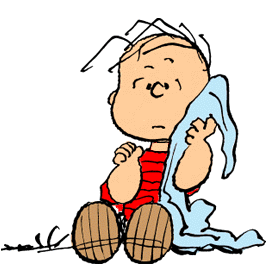I have been toiling over this book over and over in my poor journal that wasn't meant for such toiling over books books books. But I've been moving, haven't had internet, so this blog -- which is essentially a dumping station for my literary impressions knowing the best ideas come into my head and rarely in type -- wasn't available. Now that it is, I have already started my plans to do a second reading with running commentary, which will undoubtedly take the form of more questions than answers, and through these questions I find the truth of the book, or at least personal truths, if not a few universal. Questions like:
-Is Gibreel's situation similar to Mahounds, in that Mahound was going through the same schizophrenia in believing he was talking to an angel as Gibreel was in believing he was a holy entity talking to angels and the undead and even God? Then the secondary question: is this a commentary in believing in one's own "hype"?
-Who is Ayesha in this story? Is Gibreel Ayesha, are their deaths parallel? Knowing there was nowhere else to go, that the road ended at the Arabian Sea, did Ayesah commit suicide and take all others with her? If that's the case, how is this similar to Gibreel outside of his own suicide? What does he take with him? Anything?
You know, basic questions, easy to answer (hardy har har).
To break down my basic interpretation it goes in these parts:
1) This book is not about religion, it's about man the highest, and the transformation of two men in opposite directions in an incredibly poetic and symbolic way. Instead of Bible, it is grand Fiction that reveals subtle and hard to define truths, but truths nonetheless.
2) This book is about the non-distinction of good and evil as inherent in man, and that neither exists explicitly but are non-interpretive and complex pieces of what a human is. Shaitan and Allah live in us all, and reveal their parts in mysterious ways.
3) This book is about the migrant and his struggles to navigate between two distinct and opposing ways.
4) This book transcends the migrant in exhibiting how one -- anyone anywhere anysituation -- must navigate the big BE, IT, ALL, the WORLD; it is about ambiguities, contradictions, as our hero is the one to transform into Shaitan and our tragic piss the archangel Gabriel! How can this be?! Go back to number two, see that the Shaitan is only thus because the context has brought out the scum in him, and conversely the angel in the actor. It is about the hopeless absurdity of life, and the hope in that.
And it's about none of those things and many other things. I'm sure it's about religion, too, breaking it down to its flaws and manmade ways. But I'm going to do running commentary on my second reading so I'll talk about much more later. All I can say now is that "The Satanic Verses" captured me in all its post-modern openness and liberation-ary prose as one that is automatically going into my favorites.

No comments:
Post a Comment